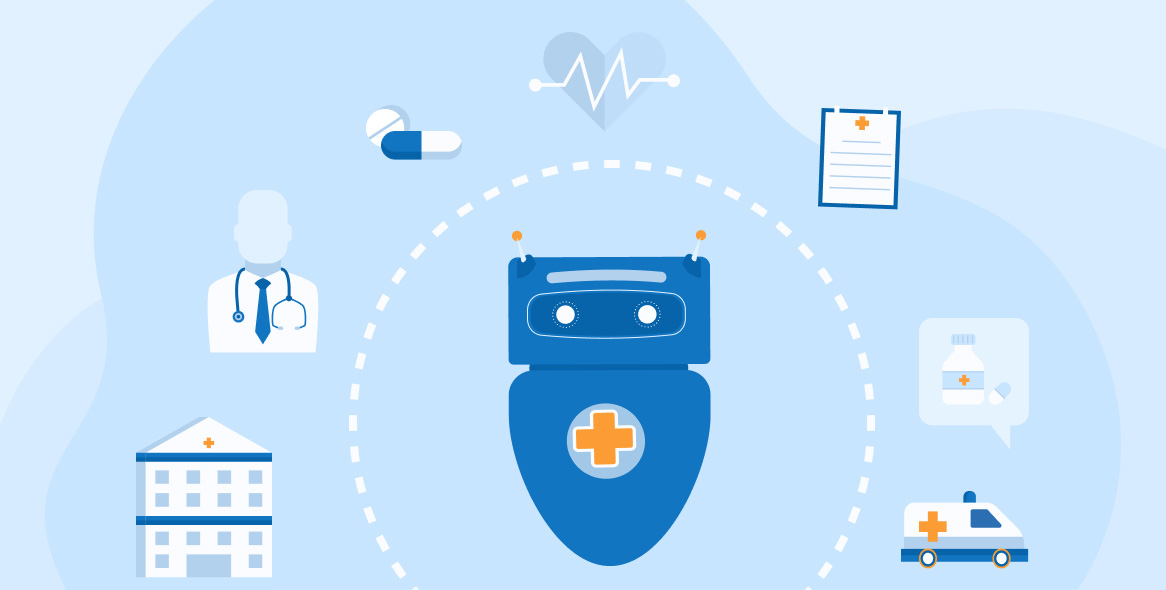In today’s healthcare landscape, effective patient communication is essential for delivering quality care. With advancements in artificial intelligence, AI-powered medical scribe tools have become valuable assets in improving both communication and documentation within clinical settings. These tools play a key role in enhancing the accuracy and efficiency of patient interactions by supporting medical professionals and streamlining data entry. By integrating AI in patient communication improvement, healthcare providers are able to focus more on direct patient care, ultimately fostering a more supportive and informed environment for patients.
AI applications like Medical AI Chatbot systems and virtual scribes enable better patient interactions by handling essential documentation and data input tasks in real time. This level of support aids clinical data management by ensuring that patient information is organized, accurate, and accessible. As we explore how AI-powered tools assist medical scribes, we’ll examine the role of these tools in enhancing patient communication, improving healthcare documentation accuracy, and supporting healthcare providers in delivering high-quality care.
The Role of AI in Patient Communication Improvement
Enhancing Real-Time Patient Interaction
Supporting Healthcare Documentation Accuracy
Accurate documentation is crucial in healthcare, where incomplete or incorrect data can lead to misdiagnosis or inadequate treatment. AI in healthcare documentation accuracy provides significant benefits by ensuring that patient information is captured accurately and consistently. AI-powered scribes utilize natural language processing (NLP) to interpret and transcribe conversations between patients and providers, significantly reducing the likelihood of documentation errors.
- AI scribes create a detailed record of patient interactions, minimizing the chances of missed or inaccurate information.
- Automated transcription enables consistent and accurate data entry, supporting long-term patient care and follow-up.
By improving documentation accuracy, AI-powered tools contribute to effective clinical data management, ensuring that all patient data is complete, accurate, and readily available to healthcare teams.
Key Benefits of AI-Powered Medical Scribe Tools for Patient Communication
Reducing Administrative Burdens on Healthcare Providers
One of the most notable advantages of AI-powered medical scribe tools is their ability to reduce administrative workloads for healthcare providers. Documentation and data entry can be time-consuming, taking valuable time away from direct patient care. AI medical scribes handle these tasks, enabling providers to spend more time interacting with patients.
- By reducing the administrative burden, AI tools allow providers to focus on patient concerns, leading to more meaningful communication and improved patient outcomes.
- Providers can approach each consultation with greater attention, as they are not distracted by data entry or documentation tasks.
This increased provider focus on patient care is integral to AI in patient communication improvement, as it allows healthcare providers to prioritize patient engagement without compromising documentation quality.
Improving Patient Data Interaction and Accessibility
With AI-powered patient data interaction, medical scribes can organize and retrieve patient information quickly, allowing providers to access the most up-to-date information during patient visits. These AI tools categorize and store data efficiently, making it easy to pull relevant information for consultations, follow-ups, or referrals.
- AI-driven data management enables providers to review comprehensive patient records quickly, enhancing their ability to address patient concerns accurately.
- By ensuring patient data is readily accessible, AI-powered tools facilitate smoother communication and more informed decision-making.
Enhanced data accessibility supports clinical data management by maintaining a well-organized and centralized database, enabling healthcare providers to deliver patient-centered care with ease.
Facilitating Virtual Scribes for Enhanced Patient Care
Virtual scribes for enhanced patient care provide a flexible solution for healthcare providers, as they can operate remotely, reducing the need for on-site documentation support. Virtual scribes powered by AI handle real-time transcription, enabling providers to concentrate on patient interaction and improving the efficiency of patient visits.
- Virtual scribes assist in maintaining seamless documentation, even during telemedicine consultations, ensuring that all patient interactions are accurately recorded.
- The use of virtual scribes enhances patient communication by allowing providers to engage directly with patients, whether in-person or virtually.
With virtual scribes, healthcare providers can support high-quality patient communication and accurate documentation simultaneously, a crucial aspect of AI in patient communication improvement.
Key AI Tools for Enhancing Patient Interaction in Healthcare
Medical AI Chatbots for Patient Engagement

Medical AI Chatbot systems are increasingly integrated into clinical workflows, where they assist in patient engagement before and after consultations. These chatbots answer preliminary patient questions, gather symptom information, and provide guidance on next steps, helping patients feel supported and informed.
- AI chatbots improve the efficiency of patient-provider interactions by addressing patient queries and setting the stage for in-depth consultations.
- By gathering preliminary information, chatbots streamline patient communication, ensuring that providers have a clear understanding of patient concerns at the start of each consultation.
Medical AI Chatbots play an essential role in AI in patient communication improvement, as they create an engaging, patient-centered experience that builds trust and prepares both patients and providers for effective interactions.
NLP-Powered Documentation Systems
Natural language processing (NLP) is a powerful tool for AI-powered medical scribe tools, enabling them to transcribe conversations accurately and interpret medical terminology effectively. NLP-driven documentation systems support medical scribes by ensuring that patient information is captured in the appropriate context, reducing the risk of documentation errors.
- NLP algorithms recognize and interpret complex medical language, ensuring that all details are documented accurately.
- By facilitating real-time transcription, NLP improves the efficiency of data entry, making it easier for healthcare providers to maintain focus on patient communication.
These systems enhance clinical data management by providing a reliable source of accurately transcribed patient interactions, creating a more organized and accessible database for healthcare teams.
The Impact of AI Medical Scribes on Patient Communication and Care
Building Patient Trust Through Enhanced Interaction
Patients place significant value on open, focused communication with their healthcare providers. AI-powered patient data interaction tools, such as medical scribes and chatbots, support providers in creating a patient-centered environment by allowing them to engage more effectively with patients.
- By reducing distractions, AI medical scribes help providers give their full attention to patients, increasing patient satisfaction and trust.
- AI chatbots handle initial inquiries, reducing patient anxiety and allowing them to enter consultations with a clear understanding of the process.
With AI in patient communication improvement, providers can create a more supportive environment for patients, enhancing their overall healthcare experience and ensuring better care outcomes.
Supporting Healthcare Providers in Delivering Consistent Care
AI-powered medical scribes ensure that healthcare providers have access to complete and accurate patient records, which is crucial for delivering consistent, high-quality care. By automating data management tasks, AI helps create a comprehensive picture of each patient’s health, allowing providers to make well-informed decisions.
- Automated documentation provides a consistent record of patient interactions, which is valuable for follow-ups and future consultations.
- AI-powered tools support clinical data management by maintaining detailed records that healthcare teams can access anytime, improving continuity of care.
By supporting continuity and consistency in patient care, AI-powered medical scribe tools ensure that healthcare providers can maintain high standards in patient communication and documentation, contributing to improved patient outcomes.
Adapting to Telemedicine with AI Scribes
With the rise of telemedicine, virtual scribes for enhanced patient care have become invaluable assets. AI scribes assist with telemedicine documentation, allowing providers to concentrate on patient interaction without the distractions of data entry. This adaptation to virtual healthcare settings demonstrates the flexibility of AI-powered tools in maintaining patient communication quality across various platforms.
- AI-powered virtual scribes capture the details of telemedicine interactions accurately, creating a reliable record of each patient visit.
- By supporting remote documentation, virtual scribes facilitate patient communication and maintain documentation accuracy in virtual care settings.
AI medical scribes are essential to the expansion of telemedicine, ensuring that both documentation and patient interaction remain consistent, regardless of the care platform.
Conclusion
AI-powered medical scribe tools are transforming patient communication in healthcare, enabling providers to engage more effectively with patients and improve documentation accuracy. By automating real-time transcription, data entry, and data organization, these tools allow healthcare providers to focus on delivering patient-centered care. AI applications like Medical AI Chatbot systems and virtual scribes play essential roles in clinical data management, creating a secure and organized database of patient information.
Through enhanced data accuracy, reduced administrative workload, and improved patient interactions, AI in patient communication improvement fosters a more supportive and efficient healthcare environment. As AI technology continues to evolve, its impact on patient communication and care quality will only deepen, offering healthcare providers new ways to engage with patients and improve their healthcare experiences.
 Crypto trade Online Unlock the Future of Finance Today.
Crypto trade Online Unlock the Future of Finance Today.




